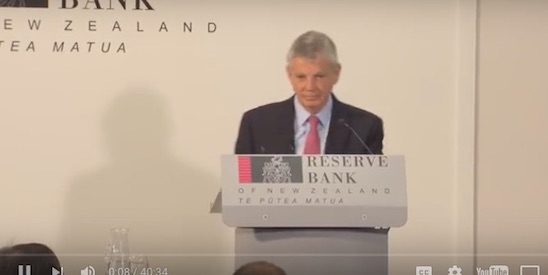Accounting & Finance
A Guide to Trusts
Trusts have become very popular in New Zealand with many thousands having been established in recent years. There is good reason for their popularity, as they are one of the best ways to provide protection to yourself and your loved ones from future adverse events impacting on your hard earned wealth.

This information has been reproduced with permission by Mark Maxwell
Introduction
Trusts have become very popular in New Zealand with many thousands having been established in recent years. There is good reason for their popularity, as they are one of the best ways to provide protection to yourself and your loved ones from future adverse events impacting on your hard earned wealth.
Trusts are not however a ‘set and forget’ matter, where you simply sign the trust deed expecting on-going protection into the future. Trusts require careful administration and regular review to ensure they continue to provide the protections they were established to achieve.
Failure to administer a trust correctly can not only see the protections lost but significant financial liability imposed on trustees should they be found to not be undertaking their role as they should.
This guide is written as an introduction to what a trust is and includes some of the advantages and disadvantages associated with trusts. As trusts are a complex matter, professional advice should be sought by anyone seeking to establish one.
Important Note: Trusts are only one tool in helping to protect wealth and are not always the right answer. Any decision to establish a trust should be part of a comprehensive Wealth Protection Planning process.
What is a trust?
A trust is a legal relationship between various parties established either to provide protection from risk or a benefit of some sort. The parties involved are:
- Settlor: The person who establishes the trust and transfers assets into it.
- Trustee: The person into whose name the assets are transferred to hold for either a specified purpose or person.
- Beneficiary: The person who is entitled to benefit from the assets held in the trust.
The relationship between these parties is created by the Trust Deed that is prepared. There are specific legal requirements to ensure a trust is established correctly, which is why seeking legal advice is so important.
Why establish a trust?
There are many reasons why people establish trusts. Often they are to protect wealth from the risk of being challenged by a future adverse event, such as a business failure. However many trusts are also established to provide a benefit, such as an education trust for grandchildren for instance.
Some common benefits of establishing a trust are:
- Protecting personal wealth from a relationship breakdown
- Protecting family wealth from business risk
- Protecting personal and family wealth from the risks associated with acting in professional roles such as Director of a company or Trustee of a trust
- Removing wealth from your personal name to avoid people contesting your estate
- Providing control of wealth and assets after death
- Protecting wealth from existing or future Government legislation, such as rest home charges or death duty
- Tax structuring to pay the minimum amount of tax required
- Holding assets, such as holiday homes, for future generations
- Protecting inheritances for descendants, particularly those with special needs
- Providing a trust fund to assist with education costs of future generations
- Giving back to the community through charitable trusts
Establishing a trust is a personal decision based on individual circumstances. The decision is one based on weighing up how likely an adverse event is likely to occur versus the costs and responsibilities of trusts. Two people in very similar circumstances may choose different approaches depending on their personal views.
Let’s take an example; there many people who have sought to protect their homes from future rest home fees by transferring it to a trust. They are effectively saying the risk of them going into a rest home is worth the cost of establishing a trust. Equally however there are many people who have accepted the risk that they may have to sell their home if they go into rest home care rather than go to the cost of establishing a trust.
In essence trusts are often therefore similar to insurance. The costs of establishing and administering a trust are like paying premiums to insure your wealth.
Who should establish a trust?
Trusts are not for everyone. However anyone that has, or intends to accumulate, wealth during their lifetime should at least make an informed decision about whether trusts are for them. This does not necessarily mean they will establish a trust. Often people can achieve their goals through a well constructed Will for example.
Trusts are, and will continue to be, a vital tool in protecting ones wealth. With life seemingly getting more and more complicated everyday there comes more and more risk of things going wrong. In addition we are becoming a more litigious society all the time meaning we are more likely than ever to be challenged legally should something go wrong. It is here that a well established and managed trust can be worth its weight in gold.
When should a trust be established?
Generally speaking the sooner one establishes a trust the better. This is because it takes time for assets to be gifted into the trust and there are certain legal timeframes within which trusts can be challenged.
A trust should however be a part of a comprehensive wealth protection plan and not simply established in isolation. Often independent advice will be required from a number of sources, in particular your lawyer and accountant. Wealth protection planning can take some time and involve costs however the benefits far outweigh the costs of unraveling a poorly designed trust structure.
The key to gaining maximum protection from trusts is to get good advice, plan well and start early. Far too many people leave it until the risks become a reality before they seek advice only to find out they are too late.
What happens after a trust is established?
Once the Trust Deed is signed and the initial settlement (normally $10 to $100) is paid the trust ‘exists’. However it doesn’t own anything at this stage so the next step is to transfer assets to the trust.
Assets cannot simply be transferred to the trust as this will create potential gift duty liabilities. Gift duty is payable to Inland Revenue and is assessed on any gifts over $27,000 made in any year. Current gift duty rates are shown in the table below.
Total Gifts Per Annum Duty Payable Up to $27,000 No duty payable $27,001 to $36,000 5% $36,001 to $54,000 $450 plus 10% $54,001 to $72,000 $2,250 plus 20% Over $72,001 $5,850 plus 25%
Example: Gift of $100,000 Gift Duty $12,850
To avoid gift duty assets must therefore be purchased by the Trustees for a fair value, often supported by an independent valuation. Of course the Trustees have no funds with which to buy the assets so the Settlor, who is selling the assets, provides the Trustees with a loan for the value of the assets in return for the transfer. It is the balance of the loan owing to the Settlor that is gifted to the Trustees over time.
What are the on-going requirements for trusts and trustees?
Acting as a Trustee is a fiduciary role, meaning you are required to act in the best interests of all of the beneficiaries of the trusts. Trusts require careful and diligent management to ensure they continue to provide the benefits and protections they were established to achieve.
Trustees have various duties required of them and must undertake regular management functions to maintain trust integrity. For more information on this see our Guides on Trustees Duties and Trust Management.
What are the disadvantages of trusts?
The disadvantages associated with trusts are normally far outweighed by the benefits but should be considered before proceeding.
The most important disadvantage is that any assets transferred to a trust are no longer owned by the person establishing the trust, meaning they cannot continue to act as though they still were. Continuing to treat assets as though they still belong to the settlor will open a trust up to challenge.
The costs associated with both the establishment and management of trusts is another disadvantage. Establishment costs can be a few thousand dollars and depend largely on the complexity of the advice as well as the number and type of assets being transferred.
On-going management costs are typically quoted as being only a few hundred dollars each year. This modest cost often only covers a portion of the management Trustees are required to undertake, such as gifting or acceptance of financial accounts. In our experience even basic trust management to a high standard costs between $750 and $1,200 per annum, with costs increasing with complexity. If you are paying less than this for professional services we recommend you ensure all aspects of management are being undertaken.
Conclusion
Trusts are a very effective way to protect wealth from future adverse events that may occur in life. It is important however that trusts are considered as part of a comprehensive Wealth Protection Planning process and not simply purchased in isolation.
Once established trusts require on-going attention to ensure they cannot be challenged. It is the responsibility of all Trustees to ensure the trusts they are responsible for are managed well. Trust management need not be onerous however if Trustees have any doubt about their role or what is required of them they have a duty to seek advice.
The information contained in this guide does not constitute legal advice and should not be relied upon as such. It is only intended to provide general information in summary form on legal issues commonly encountered and current as at the time this guide was first published.

Accounting & Finance
Low Interest Rates Winners and Losers

Lower mortgage interest rates is a big deal for most homeowners and buyers.
Existing homeowners can hunt around for a better deal with the same or another lender and in the process save hundreds, if not thousands of dollars on interest payments. Even if a borrower is locked into a fixed rate deal on a fixed term, it often pays to break it and reap the rewards of paying a lot less interest.
For first time home buyers, lower interest rates can be the difference between renting and owning a home. Existing homeowners trading up or down, see lower interest rates as a great time to sell and buy too, Therefore there is always a frenzy of activity in the mortgages sector when there is movement in interest rates and there will be winners and and there will be losers.
Winners and Losers
Lower interest rates sends a signal to vendors with homes to sell, that there are more buyers in the market. This can get unsold properties sold which is a win win for vendor and buyer.
More buyers in the market, however can also push the sales price up, as vendors aim to get the best price and there can be only one buyer, the one who is willing and able to pay the most.
In this situation it’s more of a win for the vendor. The eventual purchaser is likely to have paid more than they were comfortable with and thus borrowed more to get the property. Plus there were many buyers locked out by the higher price.
First Home Buyer Tip
The tip for first home buyers is to always be ready to take action as soon as the timing is right.
For first home buyers, it’s always a good time keep a financial advisor or broker up to speed on your personal financial position. This way when the timing is right, like a downward move in interest rates, you can just ask the question:
“What can I afford to borrow, now the interest rates are lower?”
There is no such thing as one size fits all when it comes to borrowing money. Your position will determine how high risk you are to a lender.
A trusted advisor in the know, can act fast on your behalf when lending conditions favour you. Lenders who see you a good ‘investment’ will be keen to move quickly too, to secure your business and thus beat their competition, i.e. other lenders.
Recent news of an OCR rate drop by the RBNZ, spread like wildfire around the country and the early worm is sure to get the best deals.
Homeowners with advisors already up to speed on their current position, will be busy acting on their behalf, to find the best deal saving their clients hundreds if not thousands in interest repayments over the term of their loan.
Property price increases have cooled in Auckland, increasing by just 1.7 percent compared to the previous year. Listings too have been lower, however that’s all about to change. More buyers, trigger more listings and with more buying power, higher property prices.
Timing is everything, so whatever your circumstance, talk to your mortgage advisor and act on the deal that’s right for you.
Accounting & Finance
Property Listings Drought Adds Fuel To Fire
A property listings drought is adding further fuel to our over-heated property market. Property prices are increasing everywhere except Taranaki according to Trade Me Sales Price Index and that’s got the RBNZ considering further action to curb demand.

A property listings drought is adding further fuel to our over-heated property market. Property prices are increasing everywhere except Taranaki according to Trade Me Sales Price Index and that’s got the RBNZ considering further action to curb demand.
The RBNZ’s LVR restriction on Auckland property investors has done little to dampen their appetite and many have also moved their focus to other areas where property prices have been on the increase since October 2015.
The listings drought suggests most home owners are electing to improve their properties using the equity in their homes over moving house. Some Aucklanders have chosen to leave the city for change of lifestyle and Tauranga has been one of the main benefactors as well as the region of Hawkes Bay.
Curbing demand is how the RBNZ want to deal with the property market and they’re considering a variety of measures. Bernard Hickey in a news item on NZHerald believes we’ll know more on the RBNZ’s next move in the second half of 2016. Bernard mentions two dates in particular: 19 August is the deadline for Auckland Council to accept all or some or reject all the Unitary Plan. The Government is hinting at wading in if the Unitary Plan does not meet their goals of an Auckland growing up and out to meet new housing supply targets.
The other date to watch out for is 30 November. On this day the RBNZ presents it’s Financial Stability Report. One of the measures under consideration by the RBNZ is the fixing of the income to loan ratio.
From the news item on NZHerald
“The Reserve Bank helpfully included a chart in this week’s report that showed around 35 per cent of owner-occupiers and 60 per cent of investors had borrowed more than 5 times their income.”
New rules are coming and if what’s happened to date is anything to go by the RBNZ is not shy at taking action so keep these dates in your diary. No doubt investors are now very aware of their income to lending ratio and will be taken the necessary steps to survive the next round of RBNZ restrictions.
This blog article was written for PropertyBlogs by Mobilize Mail.
Accounting & Finance
How Low Can Mortgage Rates Go?
News of lower wholesale interest rates suggests we may be in for another round of super low home loan interest rates as early as next week. A news item on interest.co.nz provides examples of the correlation between swap rates and the mortgage rates with one example being SBS Bank’s one year rate as it was back in November 2015.

News of lower wholesale interest rates suggests we may be in for another round of super low home loan interest rates as early as next week. A news item on interest.co.nz provides examples of the correlation between swap rates and the mortgage rates with one example being SBS Bank’s one year rate as it was back in November 2015. At the time their rate was big news as it was the lowest at 3.99% while the one year swap rate was at 2.72%.
Fast forward to February 2016 and SBS Bank’s one year rate is at 4.35% while the one year swap rate is currently lower than it was back in November, its currently 2.58%. A downwards move is predicted and SBS Bank could move back to where it was in November 2015 at 3.99% or go even lower.
It really just takes one lender to make a move and the other lenders are sure to follow. Borrowers in the know are regularly speaking to their mortgage broker to keep up to speed on the best deals and terms on offer.
So how low can mortgage rates go? Possibly lower than they were in 2015.
This blog article was written for PropertyBlogs by Mobilize Mail.
-

 Management5 years ago
Management5 years agoHome Insulation Requirements
-

 Investment5 years ago
Investment5 years agoAnother date NZ property investors are dreading
-

 Accounting & Finance5 years ago
Accounting & Finance5 years agoLow Interest Rates Winners and Losers
-

 Build5 years ago
Build5 years agoHow to Choose and Purchase a Suitable Property to Subdivide
-

 Management6 years ago
Management6 years agoAttracting More Business Travellers To Your Auckland Airbnb Property
-

 Investment6 years ago
Investment6 years agoWould You Be a Landlord in 2018?
-

 Tenants6 years ago
Tenants6 years agoCoworking Countdown – 4 Things to Prepare Before You Move In
-

 Renovations6 years ago
Renovations6 years agoFive easy steps to boost the appeal of your home